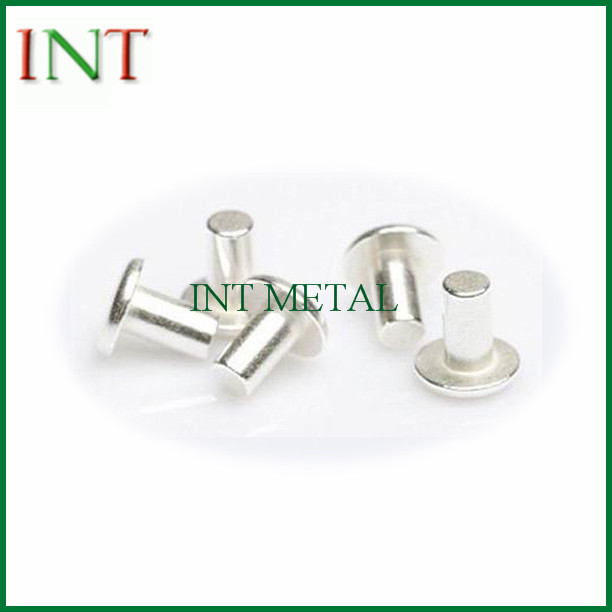Considerations regarding silver-nickel electrical contacts
2023-11-16
Silver-nickel (AgNi) electrical contacts are components used in electrical switches, relays, and other devices where reliable electrical conductivity and durability are essential. Here are key features and considerations regarding silver-nickel electrical contacts:
1. Composition:
- Silver (Ag): Silver is chosen for its excellent electrical conductivity, making it an ideal material for electrical contacts. It ensures efficient current flow and low resistance.
- Nickel (Ni): Nickel is added to enhance the mechanical properties of the contacts. It provides hardness, wear resistance, and durability, making the contacts suitable for applications involving repeated electrical switching.
2. Electrical Conductivity:
- The silver component ensures that the contacts maintain high electrical conductivity, allowing for efficient current transfer in electrical circuits.
3. Wear Resistance:
- Nickel contributes to the wear resistance of the contacts. This is crucial for applications where there is frequent contact movement, such as in switches that open and close frequently.
4. Low Contact Resistance:
- The combination of silver and nickel minimizes contact resistance, ensuring a stable and reliable electrical connection.
5. Applications:
- Silver-nickel electrical contacts are commonly used in various industries, including automotive, telecommunications, and industrial equipment. They are found in switches, relays, and other devices where efficient and reliable electrical switching is critical.
6. Arc Erosion Resistance:
- The combination of silver and nickel provides resistance to arc erosion, making the contacts suitable for applications involving electrical arcing during switching.
7. Manufacturing Processes:
- Silver-nickel electrical contacts can be manufactured using various processes, including stamping, machining, or powder metallurgy, depending on the specific requirements of the application.
8. Customization:
- The composition and manufacturing processes can be adjusted to meet specific requirements, allowing for customization based on the needs of the application.
9. Surface Treatments:
- Depending on the application, the contacts may undergo surface treatments such as plating or coating to enhance their performance, improve corrosion resistance, or provide additional protective layers.
10. Cost Considerations:
- While the cost of silver-nickel electrical contacts may be higher than some alternatives, their performance and reliability in specific applications can justify the investment.
Silver-nickel electrical contacts are chosen for their ability to provide a balance of electrical conductivity and wear resistance, making them suitable for applications where repeated electrical switching occurs. The specific composition and manufacturing processes may vary based on the requirements of the application and industry standards.



